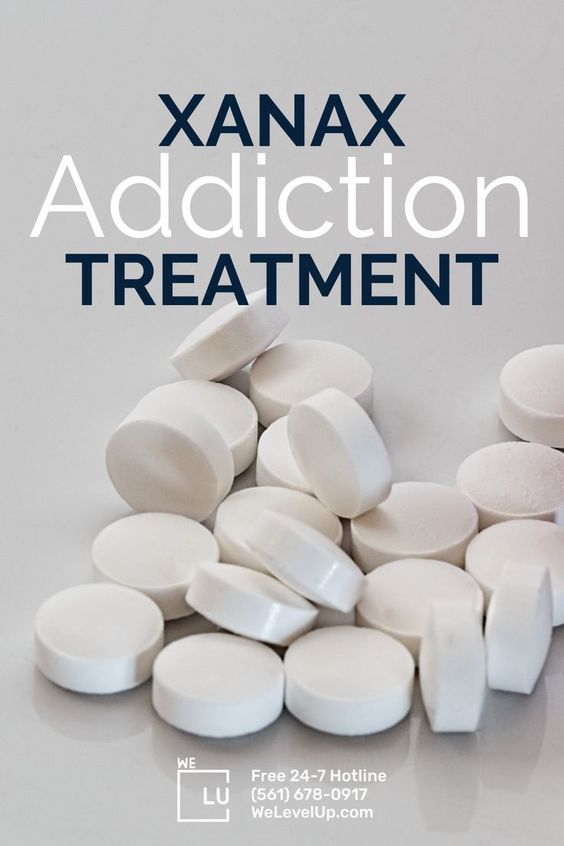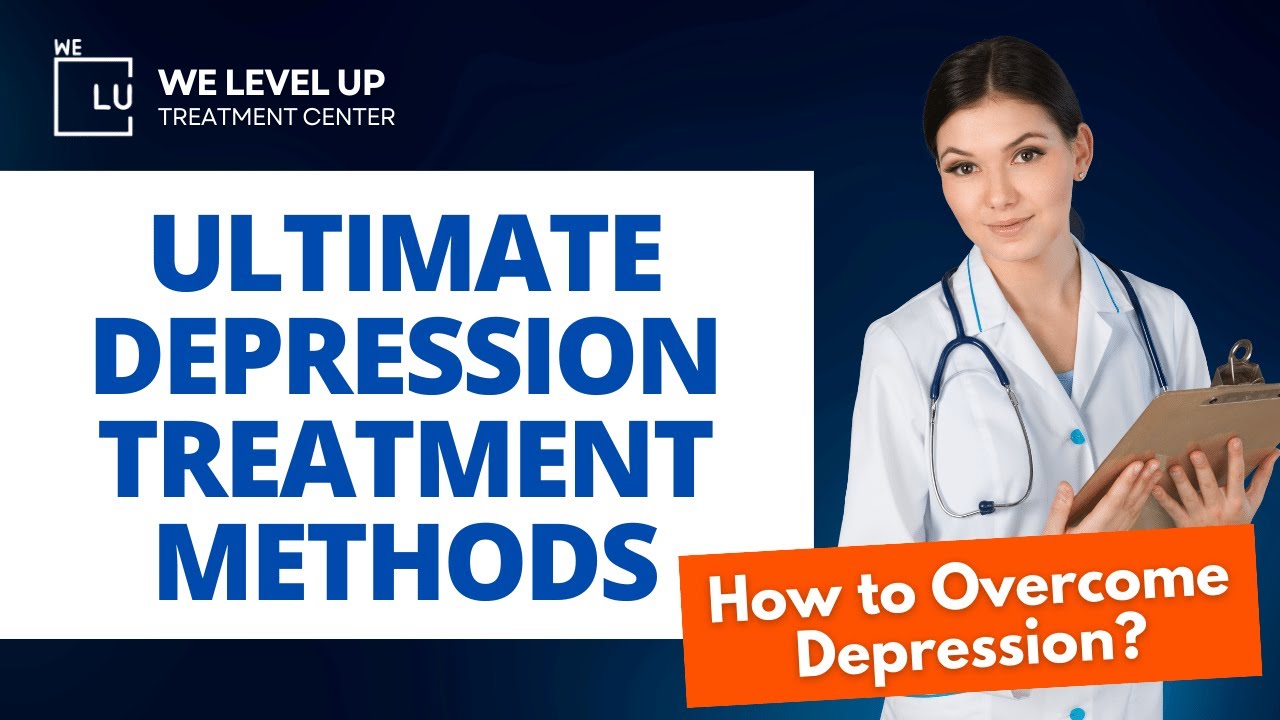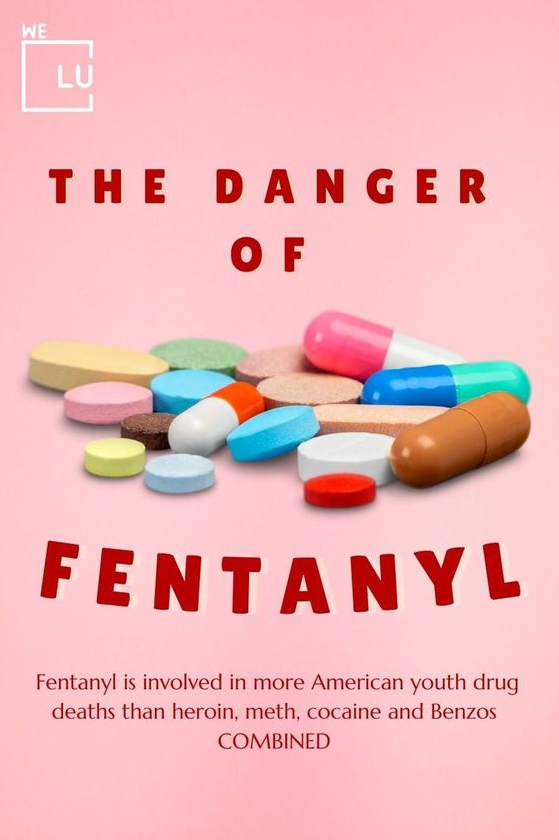One part of the treatment process for Prescription Drug Addiction is to detox prescription drugs. Prescription Drug Addiction is an illness that affects a person’s behavior and brain; it is a significant problem in the United States. The National Institute on Drug Abuse (NIDA) estimates that around 52 million Americans over the age of 12 have used prescription medicines for reasons other than medical therapy at some point in their lives. Many people can develop an addiction over time. Some people are unaware that they have progressed from recreational use to addiction, even though the consequences of addiction can be severe. [1]
Prescription medications are designed to address specific medical conditions or alleviate symptoms associated with diseases, such as asthma, cancer, depression, or anxiety. These drugs can significantly improve a person’s quality of life, transforming a life filled with discomfort and sickness into one filled with health and happiness. However, some individuals misuse prescription medications for non-medical purposes, using them as recreational drugs, which can lead to a range of adverse consequences.
Suddenly, discontinuing the use of prescription drugs can trigger withdrawal symptoms. Depending on the kind of prescription drug, these symptoms can range from mild to severe and can even become life-threatening. The detoxification process helps manage and, in some cases, bypass entirely some of the withdrawal symptoms of your chosen prescription drug. This is why a medically supervised detoxification process is recommended instead of quitting cold turkey.
We Level Up boasts a comprehensive staff that will monitor your health 24 hours a day, seven days a week. We prioritize your safety and comfort in your journey to be drug-free. Call the We Level Up TX treatment center 24 hours a day, 7 days a week, for a free consultation. Every call is free and private.
What are Prescription Drugs?
Prescription drugs, regulated for safety, demand a written prescription from licensed healthcare professionals. They treat various conditions with forms like tablets or injections. Following precise dosages and instructions is vital, and open communication about concerns or side effects with healthcare providers is crucial for optimal treatment.
Kinds of Prescription Drugs
Antidepressants
Antidepressants are medications designed to alleviate symptoms of depression and other mood disorders. Examples include fluoxetine (Prozac), venlafaxine (Effexor), and like amitriptyline.
Opioids
They are often used as medicines because they contain chemicals that relax the body and relieve pain. For example, medications containing oxycodone, such as Oxycontin and Percocet, and those containing hydrocodone, such as Norco.
Stimulants
Stimulants are drugs that excite and stimulate any bodily function. Stimulants induce alertness, elevated mood, wakefulness, increased speech and motor activity, and decreased appetite. Examples include methylphenidate (Ritalin, Concerta, others), dextroamphetamine and amphetamine (Adderall XR, Mydayis), and dextroamphetamine (Dexedrine).
Prescription Drug Detox Timeline
How long does it take to detox from prescription drugs? The detoxification process can differ significantly depending on the prescription drug, individual health factors, and the specific detox protocol. This table provides a general overview; each person’s timeline may vary.
| Detox Phase | Timeline | Description |
|---|---|---|
| Assessment | Varies Depending on the Patient. | Initial evaluation of the individual’s health and substance use history. |
| Medical Stabilization | A few days. | The initial focus is on stabilizing the individual’s physical and mental health. |
| Acute Detoxification | The initial focus is on stabilizing the individual’s physical and mental health. | The initial focus is on stabilizing the individual’s physical and mental health |
| Post-Acute Withdrawal | Weeks to months | The initial focus is on stabilizing the individual’s physical and mental health. |
| Rehabilitation and Recovery | Months and beyond | Incorporating therapeutic interventions for long-term recovery. |
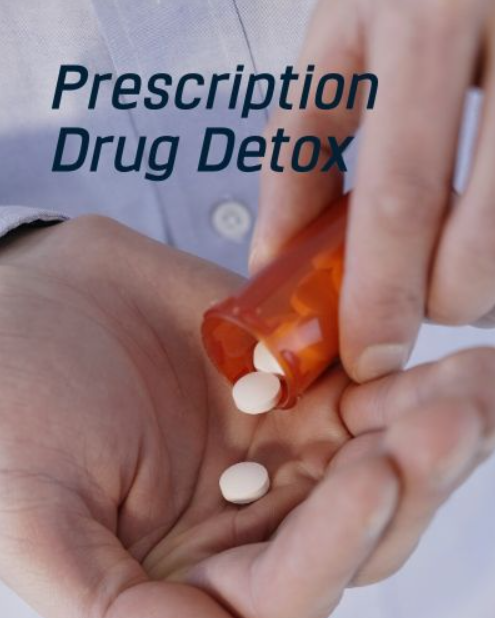
Skip To:
Learn More:
How to Detox Prescription Drugs?
Detoxifying from prescription drugs should be approached with caution, and it’s crucial to seek guidance from a healthcare professional to ensure a safe and effective process. Attempting to detox without proper supervision can lead to complications, especially for medications with a potential for dependence or withdrawal. Here’s a general guide on how detoxification from prescription drugs is typically managed:
Consult with a Healthcare Professional
Speak with your prescribing doctor or another healthcare professional to discuss your intention to detox. Provide a complete medical history, including other medications, supplements, or health conditions.
Medical Assessment
The healthcare professional will assess your overall health, the specific drug involved, and the severity of your dependence. Diagnostic tests may be conducted to evaluate organ function and other relevant parameters.
Create a Detox Plan
The healthcare provider will create a personalized detoxification plan tailored to your needs. This plan may involve gradual tapering of the medication or, in some cases, switching to a less potent alternative.
Medical Supervision
Detoxification is typically conducted under close medical supervision to monitor for potential complications or severe withdrawal symptoms. In some cases, medications may be prescribed to manage withdrawal symptoms.
Psychological Support
Emotional and psychological support is an essential component of detoxification. Counseling or therapy may be recommended to address the underlying issues related to substance use.
Post-Detox Follow-up
After the detoxification process, follow-up care is vital to monitor ongoing recovery and address any lingering issues. Healthcare providers may recommend ongoing support, such as counseling or participation in support groups.
Lifestyle Changes
A healthy lifestyle, including proper nutrition, regular exercise, and stress management, can contribute to long-term recovery.
Detoxification is just the initial phase of addressing substance dependence. Comprehensive treatment may involve rehabilitation, counseling, and ongoing support to prevent relapse and promote sustained recovery. Always consult a healthcare professional for personalized advice based on your situation and the prescription drug involved. Never attempt to detox on your own without proper medical supervision.
Get addiction counseling that works. Discover professional help from We Level Up’s addiction and mental health therapists. Start getting support with a free call to our addiction hotline.
Get Help. Get Better. Get Your Life Back.
Searching for Accredited Drug and Alcohol Rehab Centers Near You? We Level Up Texas Is Opening Soon!
Even if you have failed previously and relapsed, or are in the middle of a difficult crisis, we stand ready to support you. Our trusted behavioral health specialists will not give up on you. When you feel ready or just want someone to speak to about therapy alternatives to change your life call us. Even if we cannot assist you, we will lead you to wherever you can get support. There is no obligation. Call our network hotline today.
FREE Addiction Hotline – Call 24/7Opiate Withdrawal
Typically, opiates are prescribed to treat pain. Unfortunately, opiates have a long history of being misused for recreational purposes. Opiates are available in a couple of different forms: one form is as a prescription pharmaceutical, like morphine or codeine, and the other form is as an illegal street drug, like heroin.
When opiates are taken, the drugs enter the brain through the bloodstream, creating false endorphins and dopamines. This means that the drug gives the person the high that makes a rush of happiness and euphoria. On the other hand, opiate withdrawal is far from euphoric.
Symptoms of opiate withdrawal include:
- Fatigue.
- Insomnia.
- Excessive Sweating.
- Anxiety.
- Muscle Aches and Spasms.
- Paranoia.
- Nausea.
- Aggression.
- Abdominal Cramping.
- Rapid Heartbeat.
- High Blood Pressure.
- Dilated Pupils.
- Irritability.
- Inability to concentrate.
Antidepressant Withdrawal

Another common prescription drug that can often get misused is antidepressants, which are the most commonly used prescription drug among clients. While antidepressants are usually used to treat medically diagnosed depression, these medications are misused for the feeling of euphoria they can provide. For the most part, antidepressant misuse occurs in young adults with a substance use disorder or a mental illness. Much like opiate withdrawal, antidepressant withdrawal comes with a handful of potential side effects.
Symptoms of antidepressant withdrawal are:
- Anxiety.
- Depression.
- Mood swings.
- Dizziness.
- Fatigue.
- Tremors.
- Loss of coordination.
- Headache.
- Flu-like symptoms.
- Nightmares.
- Nausea.
- Vomiting.
- Restlessness.
- Muscle Spasms.
Stimulant Withdrawal
Stimulants are most commonly prescribed to treat hyperactivity disorders. The impact of the drug on the nervous system makes the body release natural chemicals, such as dopamine, to increase mental alertness. Stimulants have become popular among younger people because they are used as study drugs to enhance academic performance. When a person stops misusing stimulants, they can experience symptoms like:
- Difficulty Sleeping.
- Depression.
- Intense Dreaming.
- Suicidal Thoughts and Tendencies.
- Anxiety.
- Aggression.
- Tremors.
- Stomach pains.
- Sweating.
- Fever.

Get Your Life Back
Find Hope & Recovery. Get Safe Comfortable Detox, Addiction Rehab & Dual Diagnosis High-Quality Care.
FREE Addiction Hotline – Call 24/7Why Undergo Prescription Drug Detoxification?
Detoxification, also known as detox, is a fundamental process driven by a plethora of compelling variables connected with substance use and dependence. One of the main objectives is to rid the body of accumulated toxins and dangerous materials so that physical health and functionality can be restored. This critical procedure is also essential for effectively handling the complex web of withdrawal symptoms that coincide with stopping drug use. Under the watchful eye of healthcare specialists, detox enables a more controlled and acceptable experience, putting safety first in the face of significant health hazards associated with the rapid stopping of certain substances.
Aside from its immediate health benefits, detox serves as an essential starting point for subsequent treatment, establishing the foundation for thorough rehabilitation and therapy. It serves as a catalyst for interrupting the cycle of reliance, allowing people to retake control over their bodies and thoughts. Detox promotes better mental health and improves overall quality of life by providing mental clarity and emotional stability. Choosing to begin on a detox journey demonstrates a significant commitment to personal empowerment. It’s the start of your journey toward a better, substance-free existence within the larger tapestry of addiction recovery.
A Comparison of Prescription Drug Detox Methods
The choice of detox methodology depends on individual factors, including the specific prescription drug, the severity of dependence, and the person’s overall health. Personalized plans incorporating a combination of these approaches often yield the best outcomes for prescription drug detoxification.
| Methodology | Description | Benefits |
|---|---|---|
| Gradual Tapering | Slow reduction of drug dosage over time | Minimizes withdrawal symptoms, gradual adjustment |
| Medically Supervised Detox | Detox conducted under close medical supervision | Ensures safety, immediate intervention, and support |
| Substitution Therapy | Replacement of the original drug with a less potent or longer-acting medication | Manages withdrawal symptoms more smoothly |
| Supportive Medications | Administering medications to alleviate specific withdrawal symptoms | Eases discomfort, addresses anxiety, insomnia, etc. |
| Inpatient Rehabilitation | Detox within a specialized facility with 24/7 medical supervision | Provides a controlled environment, constant support |
| Outpatient Detox Programs | Detox conducted at home with regular medical check-ups | Offers flexibility with medical oversight |
| Counseling and Therapy | Incorporating behavioral therapy and counseling during detox | Addresses psychological aspects, provides coping strategies |
| Holistic Approaches | Integrating alternative therapies such as yoga, meditation, or acupuncture | Complements medical interventions, focuses on overall well-being |
| Aftercare Planning | Developing a plan for ongoing support and treatment post-detox | Ensures a smooth transition into rehabilitation |
Opening Soon! First-Class Facilities & Amenities
World-Class High-Quality Addiction & Mental Health Rehabilitation Treatment
Coming Soon! Rehab Centers TourRenowned Addiction Centers. Serene Private Facilities. Inpatient Rehab Programs Vary.
FREE Addiction Hotline – Call 24/7Proven recovery success experience, backed by a Team with History of:
- 15+ Years Experience
- 100s of 5-Star Reviews
- 10K+ Recovery Successes
- Low Patient to Therapist Ratio
- Onsite Medical Detox Center
- Comprehensive Dual-Diagnosis Treatment
- Complimentary Family & Alumni Programs
- Coaching, Recovery & Personal Development Events
Overcoming Prescription Drug Addiction. Find the Support You Need with We Level Up Prescription Drug Detox Centers
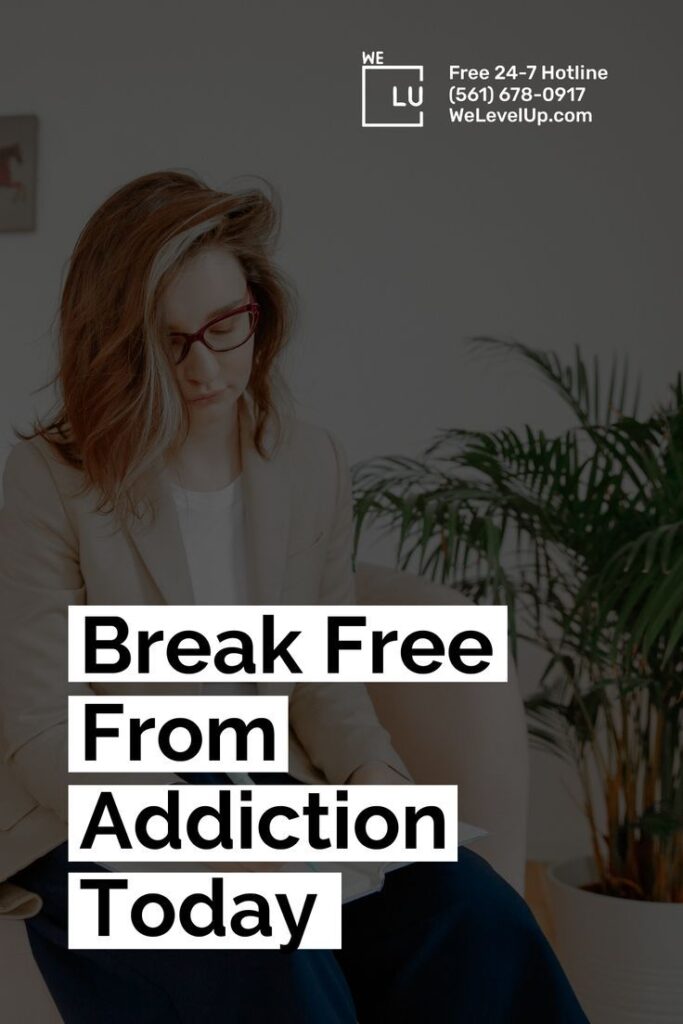
We Level Up offers tailored treatment plans for mental health, addiction, and dual diagnosis. During this critical period, our 24-hour synthetic drug detox ensures comfort. Following detox, inpatient treatment, including medication-assisted therapy, begins. Behavioral treatment, group therapy, family therapy, and alumni programs can help people heal over the long term.
After successfully finishing the prescription drug detox and inpatient treatment, our alumni programs become a cornerstone for lasting sobriety. These efforts include continuing help from medical professionals, support groups, and aid to families affected by synthetic drug usage through dedicated family therapy sessions.
Overcoming addiction is often a challenging process to go through alone. Many people experience relapses during withdrawal in an attempt to alleviate symptoms and satisfy cravings. However, you can manage withdrawal symptoms and successfully recover with detox and rehab therapy and a robust support system at the We Level Up treatment centers. If you require assistance with your rehab journey, contact a We Level Up treatment professional now. Your call is free and confidential.
Get a free rehab insurance check without any obligation.
Opening Soon! World-class, Accredited, Anticipated 5-Star Reviewed, Effective Addiction & Mental Health Programs. Complete Behavioral Health Inpatient Rehab, Detox plus Co-occuring Disorders Therapy.
FREE Addiction Hotline – Call 24/7End the Addiction Pain. End the Emotional Rollercoaster. Get Your Life Back. Start Drug, Alcohol & Dual Diagnosis Mental Health Treatment Now. Get Free No-obligation Guidance by Substance Abuse Specialists Who Understand Addiction & Mental Health Recovery & Know How to Help.
Prescription Drug Detox Infographics
The infographic below details the detoxification process, which can vary widely based on the prescription drug, individual health conditions, and the specific detox plan. The table offers a general timeline, but individual experiences may differ.
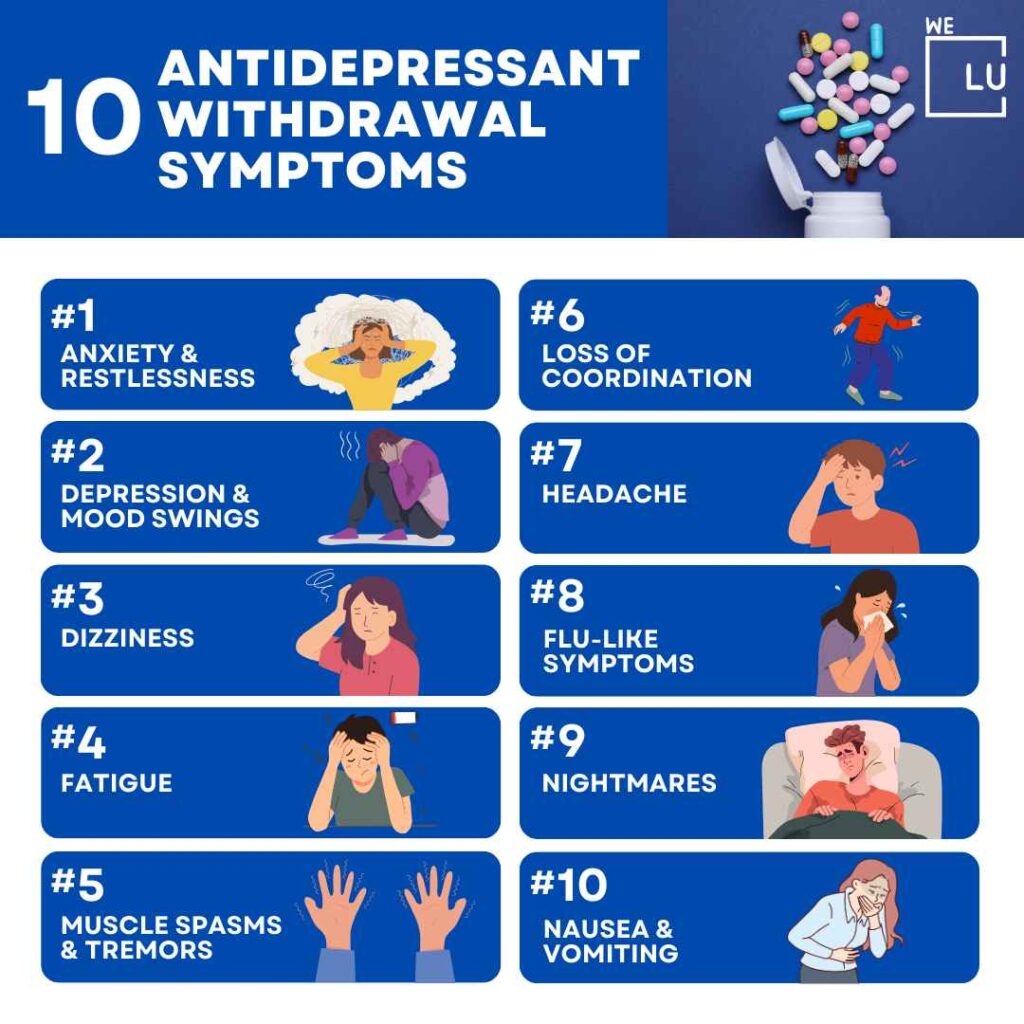
Embed the below “10 Antidepressant Withdrawal Symptoms” Infographic to your Website. This infographic is provided by the We Level Up addiction treatment center team. To use the below infographics, you agree to link back and attribute its source and owner at https://weleveluptx.com/detox-prescription-drugs/
10 Antidepressant Withdrawal Symptoms Infographic image link: https://weleveluptx.com/wp-content/uploads/2024/03/10-Antidepressant-Withdrawal-Symptoms-What-are-Prescription-Drugs-Prescription-Drug-Detox-Timeline-How-to-Detox-Prescription-Drugs-1024×1024.jpg
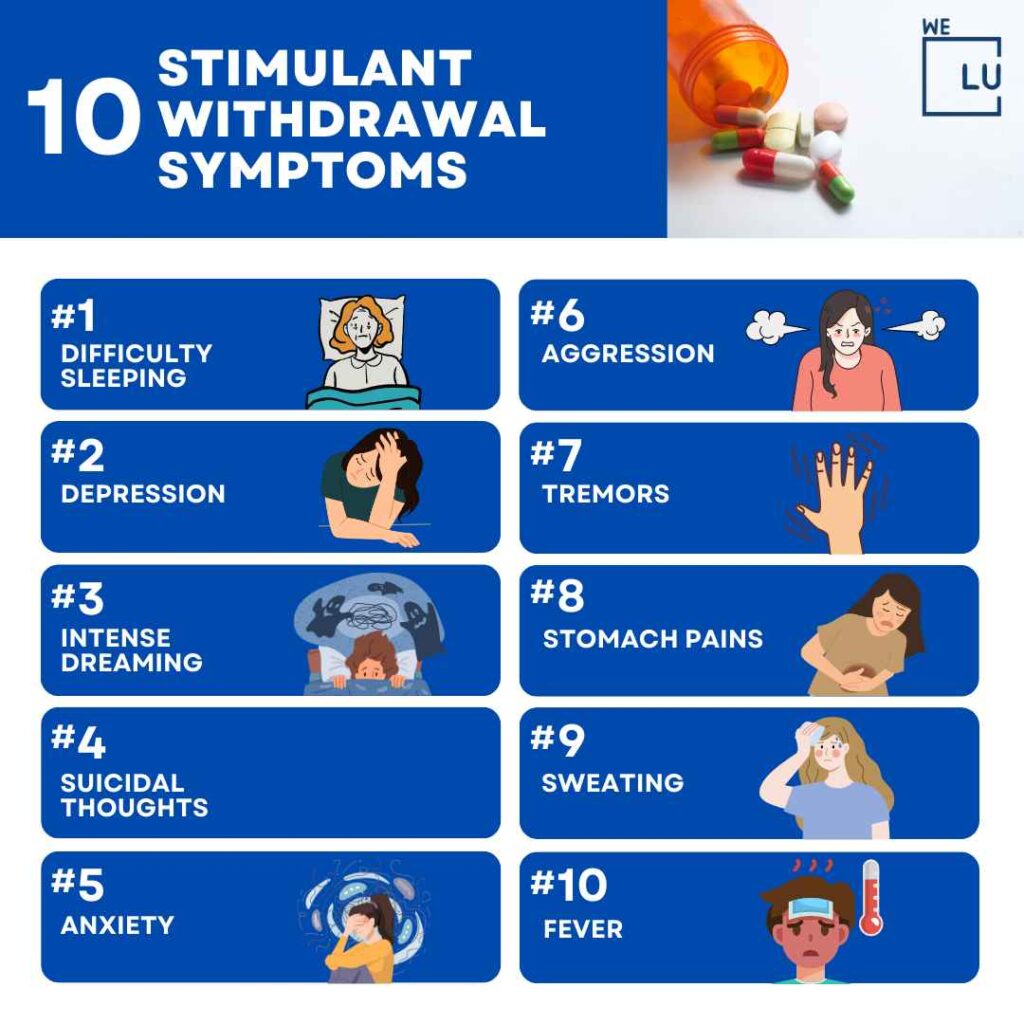
Embed the below “10 Stimulant Withdrawal Symptoms” Infographic to your Website. This infographic is provided by the We Level Up addiction treatment center team. To use the below infographics, you agree to link back and attribute its source and owner at https://weleveluptx.com/detox-prescription-drugs/
10 Stimulant Withdrawal Symptoms Infographic image link: https://weleveluptx.com/wp-content/uploads/2024/03/10-Stimulant-Withdrawal-Symptoms-What-are-Prescription-Drugs-Prescription-Drug-Detox-Timeline-How-to-Detox-Prescription-Drugs-1024×1024.jpg
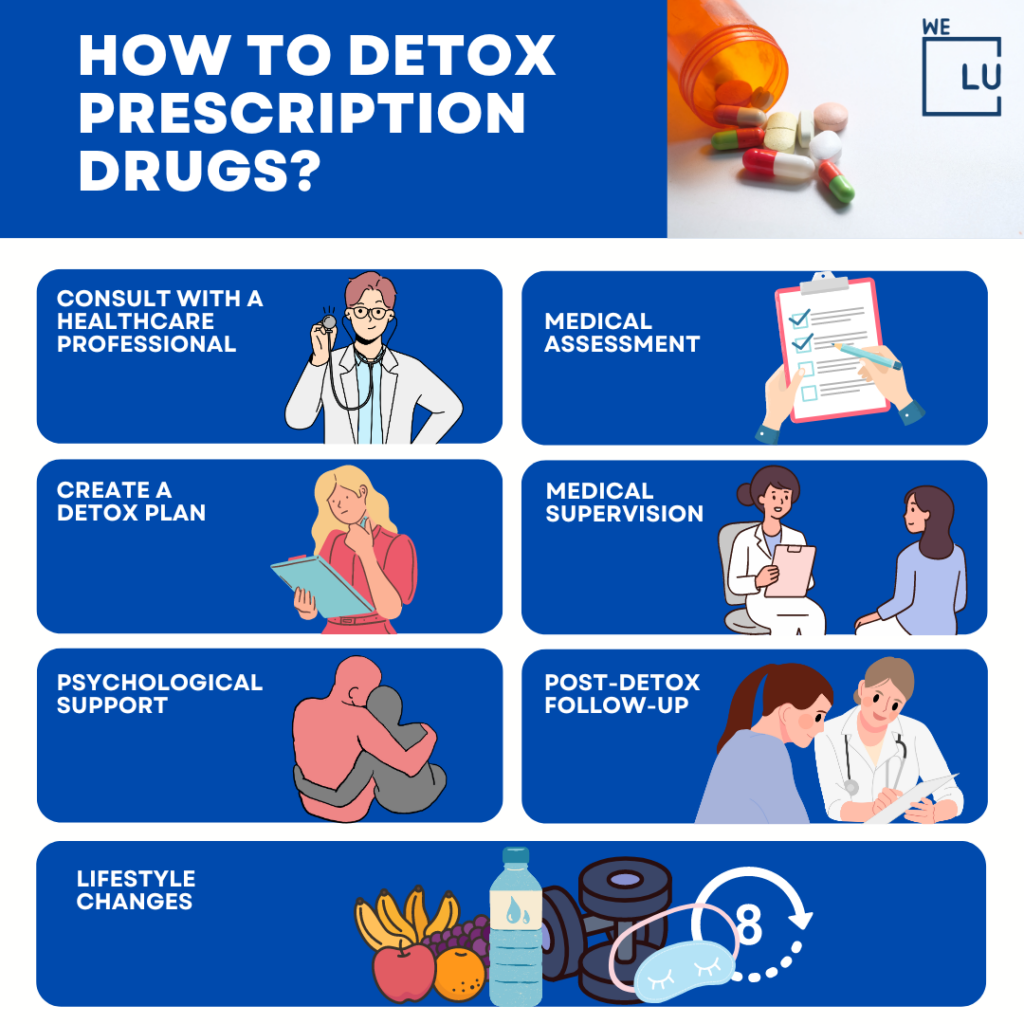
Embed the below “How to Detox Prescription Drugs” Infographic to your Website. This infographic is provided by the We Level Up addiction treatment center team. To use the below infographics, you agree to link back and attribute its source and owner at https://weleveluptx.com/detox-prescription-drugs/
How to Detox Prescription Drugs Infographic image link: https://weleveluptx.com/wp-content/uploads/2024/03/How-to-Detox-Prescription-Drugs-What-are-Prescription-Drugs-Prescription-Drug-Detox-Timeline-How-to-Detox-Prescription-Drugs-1024×1024.png
Prescription Drug Abuse & Prescription Medication Addiction Recovery & Sobriety Story
Start a New Life
Begin with a free call to an addiction & behavioral health treatment advisor. Learn more about our dual-diagnosis programs. The We Level Up treatment center network delivers recovery programs that vary by each treatment facility. Call to learn more.
- Personalized Care
- Caring Accountable Staff
- World-class Amenities
- Licensed & Accredited
- Renowned w/ 100s 5-Star Reviews
We’ll Call You
Search We Level Up Detox Prescription Drugs, Mental Health Topics & Resources
Sources
- National Institute on Drug Abuse (NIDA) (www.drugabuse.gov/)
- Detoxification and Substance Abuse Treatment [Internet]. Rockville (MD): Substance Abuse and Mental Health Services Administration (US); 2006. (Treatment Improvement Protocol (TIP) Series, No. 45.) 1 Overview, Essential Concepts, and Definitions in Detoxification. Available from: https://www.ncbi.nlm.nih.gov/books/NBK64119/
- Diaper AM, Law FD, Melichar JK. Pharmacological strategies for detoxification. Br J Clin Pharmacol. 2014 Feb;77(2):302-14. doi: 10.1111/bcp.12245. PMID: 24118014; PMCID: PMC4014033. https://www.ncbi.nlm.nih.gov/pmc/articles/PMC4014033/
- Detoxification and Substance Abuse Treatment [Internet]. Rockville (MD): Substance Abuse and Mental Health Services Administration (US); 2006. (Treatment Improvement Protocol (TIP) Series, No. 45.) 4 Physical Detoxification Services for Withdrawal From Specific Substances. Available from: https://www.ncbi.nlm.nih.gov/books/NBK64116/
- Gupta M, Gokarakonda SB, Attia FN. Withdrawal Syndromes. [Updated 2023 Apr 29]. In: StatPearls [Internet]. Treasure Island (FL): StatPearls Publishing; 2023 Jan-. Available from: https://www.ncbi.nlm.nih.gov/books/NBK459239/
- Shah M, Huecker MR. Opioid Withdrawal. [Updated 2023 Jul 21]. In: StatPearls [Internet]. Treasure Island (FL): StatPearls Publishing; 2023 Jan-. Available from: https://www.ncbi.nlm.nih.gov/books/NBK526012/ Read more: body detox from prescription drugs, how do you detox from prescription drugs, how long does it take to detox from prescription drugs, how to detox from prescription drugs, prescription drug detox at home, prescription drug detox centers,
- Kosten TR, George TP. The neurobiology of opioid dependence: implications for treatment. Sci Pract Perspect. 2002 Jul;1(1):13-20. doi: 10.1151/spp021113. PMID: 18567959; PMCID: PMC2851054. https://www.ncbi.nlm.nih.gov/pmc/articles/PMC2851054/
- Wakim JH. Alleviating symptoms of withdrawal from an opioid. Pain Ther. 2012 Dec;1(1):4. doi: 10.1007/s40122-012-0004-5. Epub 2012 Sep 20. PMID: 25134933; PMCID: PMC4107861. https://www.ncbi.nlm.nih.gov/pmc/articles/PMC4107861/
- Medline Plus “Opiate and opioid withdrawal” – https://medlineplus.gov/ency/article/000949.html
Read more: detox prescription drugs, prescription drug detox, detox from prescription drugs, how to detox your body from prescription drugs, alcohol detox prescription drugs, best way to detox from prescription drugs, - Clinical Guidelines for Withdrawal Management and Treatment of Drug Dependence in Closed Settings. Geneva: World Health Organization; 2009. 4, Withdrawal Management. Available from: https://www.ncbi.nlm.nih.gov/books/NBK310652/
- Douaihy AB, Kelly TM, Sullivan C. Medications for substance use disorders. Soc Work Public Health. 2013;28(3-4):264-78. doi: 10.1080/19371918.2013.759031. PMID: 23731419; PMCID: PMC3767185. https://www.ncbi.nlm.nih.gov/pmc/articles/PMC3767185/
- Henssler J, Heinz A, Brandt L, Bschor T. Antidepressant Withdrawal and Rebound Phenomena. Dtsch Arztebl Int. 2019 May 17;116(20):355-361. doi: 10.3238/arztebl.2019.0355. PMID: 31288917; PMCID: PMC6637660. https://www.ncbi.nlm.nih.gov/pmc/articles/PMC6637660/
- Wilson E, Lader M. A review of the management of antidepressant discontinuation symptoms. Ther Adv Psychopharmacol. 2015 Dec;5(6):357-68. doi: 10.1177/2045125315612334. PMID: 26834969; PMCID: PMC4722507. https://www.ncbi.nlm.nih.gov/pmc/articles/PMC4722507/
- Li MJ, Shoptaw SJ. Clinical management of psychostimulant withdrawal: review of the evidence. Addiction. 2023 Apr;118(4):750-762. doi: 10.1111/add.16093. Epub 2022 Dec 12. PMID: 36401591; PMCID: PMC10069411. https://pubmed.ncbi.nlm.nih.gov/36401591/
- Lago JA, Kosten TR. Stimulant withdrawal. Addiction. 1994 Nov;89(11):1477-81. doi: 10.1111/j.1360-0443.1994.tb03746.x. PMID: 7841859. https://pubmed.ncbi.nlm.nih.gov/7841859/

